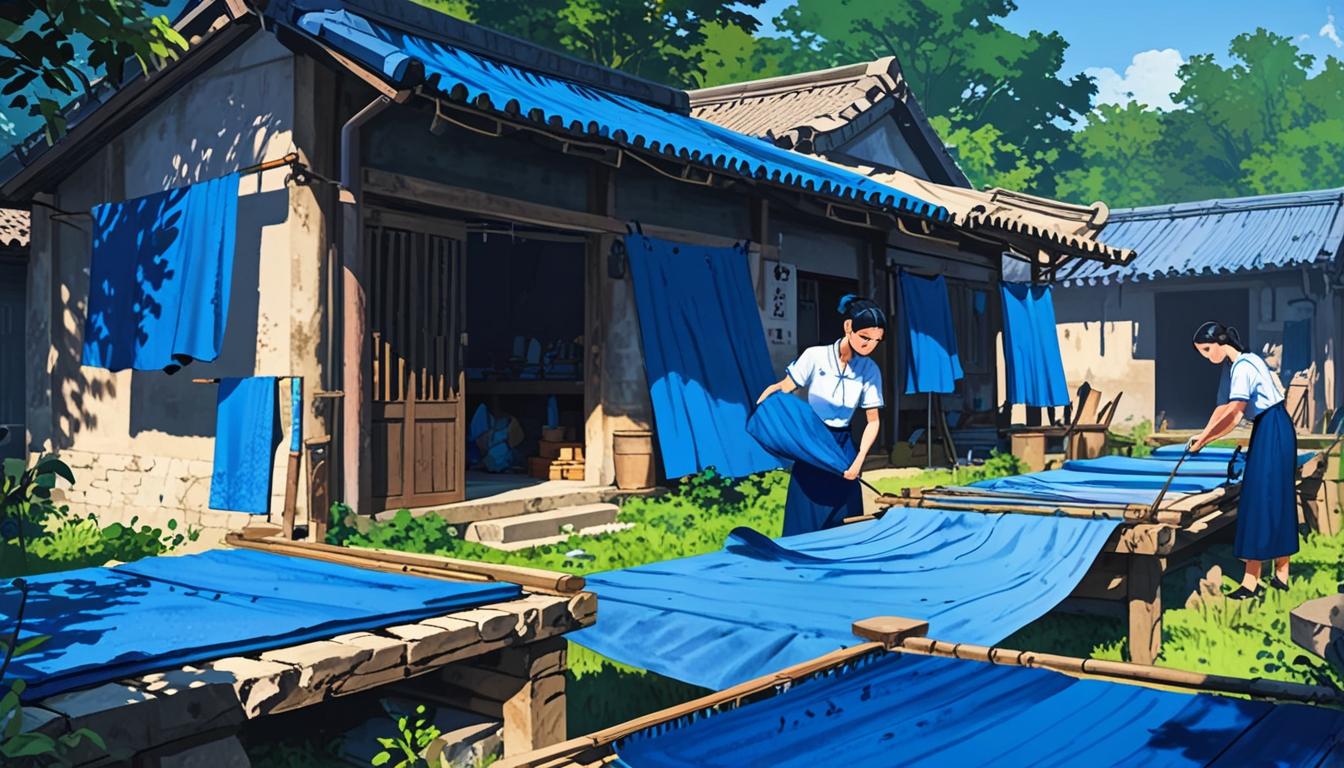As consumer awareness about environmental impacts grows, the denim industry is embracing eco-friendly practices through traditional indigo dyeing and sustainable manufacturing.
The rapid rise of environmental consciousness among consumers is influencing various industries, including fashion, particularly in denim production. An exploration into the jeans manufacturing process reveals significant environmental concerns, prompting a university student, Ding Weiyi, to delve into the pollution and energy consumption associated with cotton production and dyeing practices. Detailing these insights in an article for China Daily, Ding emphasizes the benefits of eco-friendly craft indigo dyeing, a traditional practice that has the potential to merge sustainability with modern consumer expectations.
As sustainability in fashion gains traction, Ding advocates for greater awareness of carbon labels, encouraging consumers to consider the environmental impact of their clothing choices, even with commonplace denim items. This effort aligns with a broader movement towards the “customization economy,” where individuals can purchase tailor-made, environmentally friendly products that support traditional craftsmanship.
Historically, indigo dyeing dates back over 3,000 years in China, with various regions, such as Cangnan, Nantong, and Tianmen, maintaining their traditional dyeing techniques. The process involves cultivating the indigo plant, particularly practiced by ethnic groups such as the Yao and the Miao, whose distinctive blue indigo garments are a cultural hallmark. For instance, in Longlin, Guangxi, many families operate indigo pools, where the age-old dyeing process takes place, culminating in the vibrant blue fabric that sustains their livelihoods.
Globally, the journey of indigo dyeing from China extends to Japan, where the city of Kojima has carved a niche in denim culture with its dedicated jeans museum and a focus on high-quality, handcrafted denim items. Meanwhile, in the United States, there has been a resurgence of interest in indigo cultivation and sustainable dyeing practices among denim brands and clothing manufacturers, including notable research and development efforts aimed at integrating plant-dyed fabrics into their offerings.
Particularly, some brands have adopted a localized approach, producing a limited run of jeans each year, thus catering to niche markets while prioritizing sustainability. This collaboration extends beyond national borders—universities in various countries are engaging in joint projects to explore traditional blue dyeing techniques further, reinforcing the indigo craft across cultures.
Ding posits that ongoing scientific research into indigo dyeing could enhance the uniqueness of Chinese villages and reinforce the value of traditional craftsmanship. Such developments may not only provide economic support to rural communities but also elevate the profile of their artisanal heritage in the global marketplace. This intertwining of cultural tradition and contemporary sustainability challenges presents an opportunity for innovation within the fashion industry, aligning with emerging consumer values centered around environmentally responsible practices.
Source: Noah Wire Services




